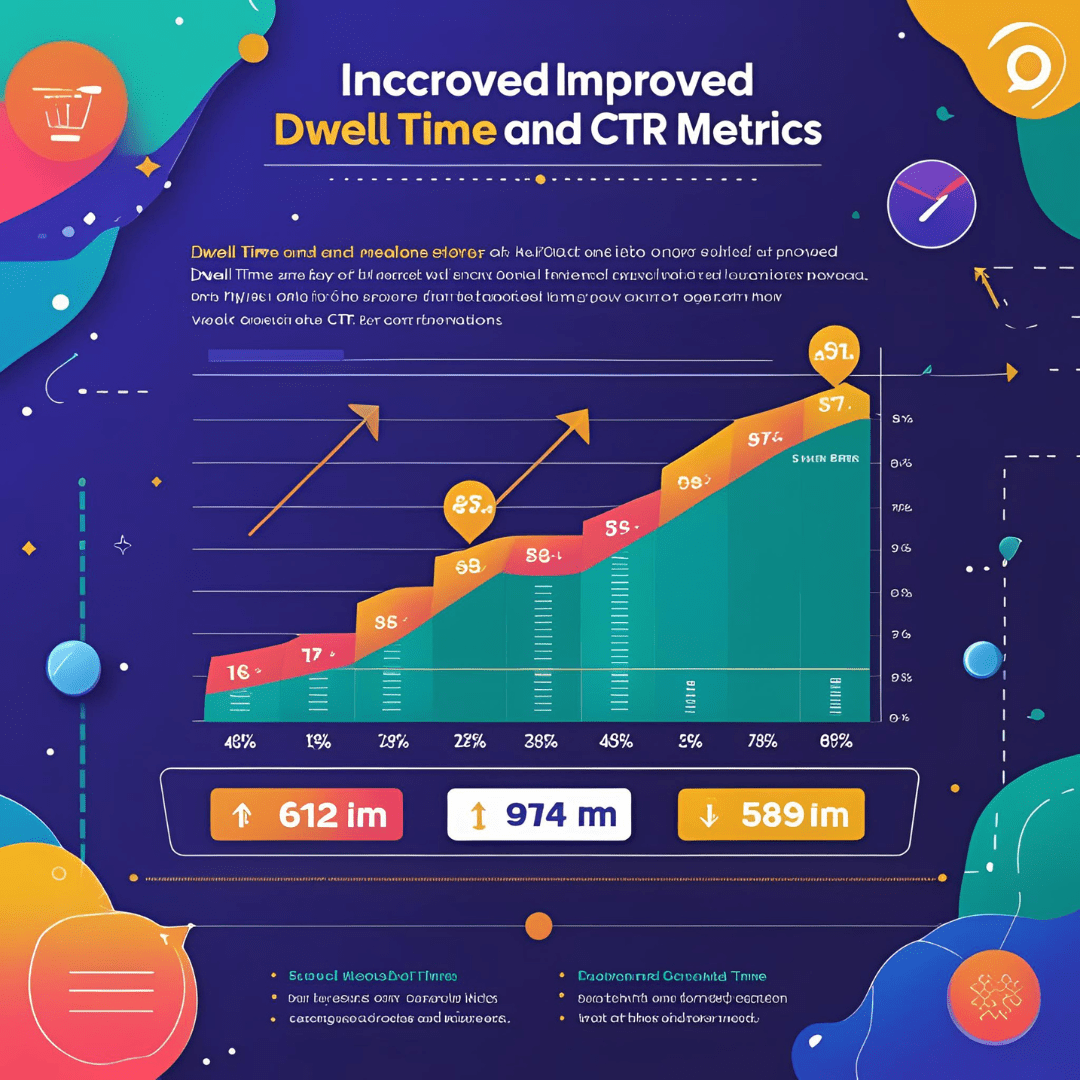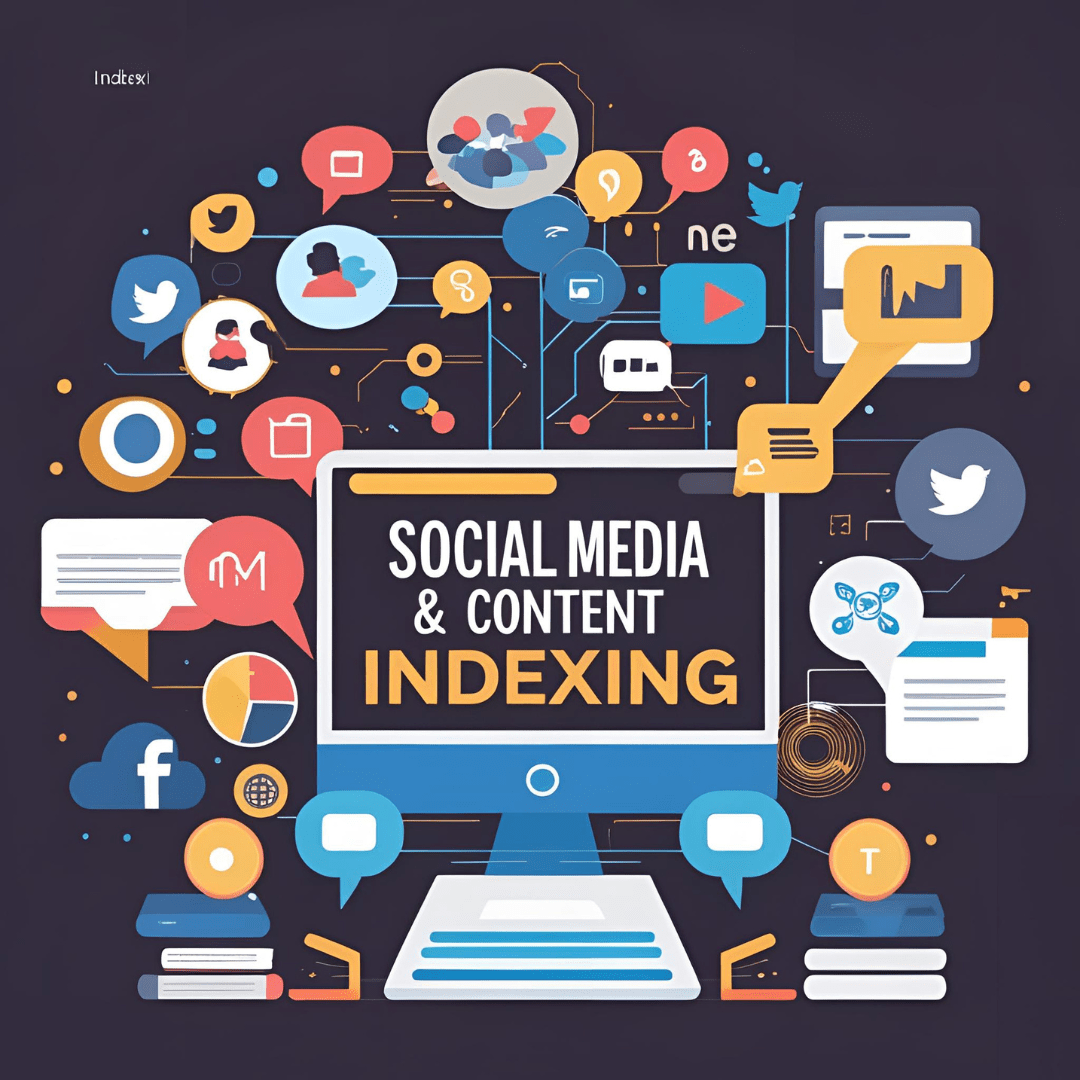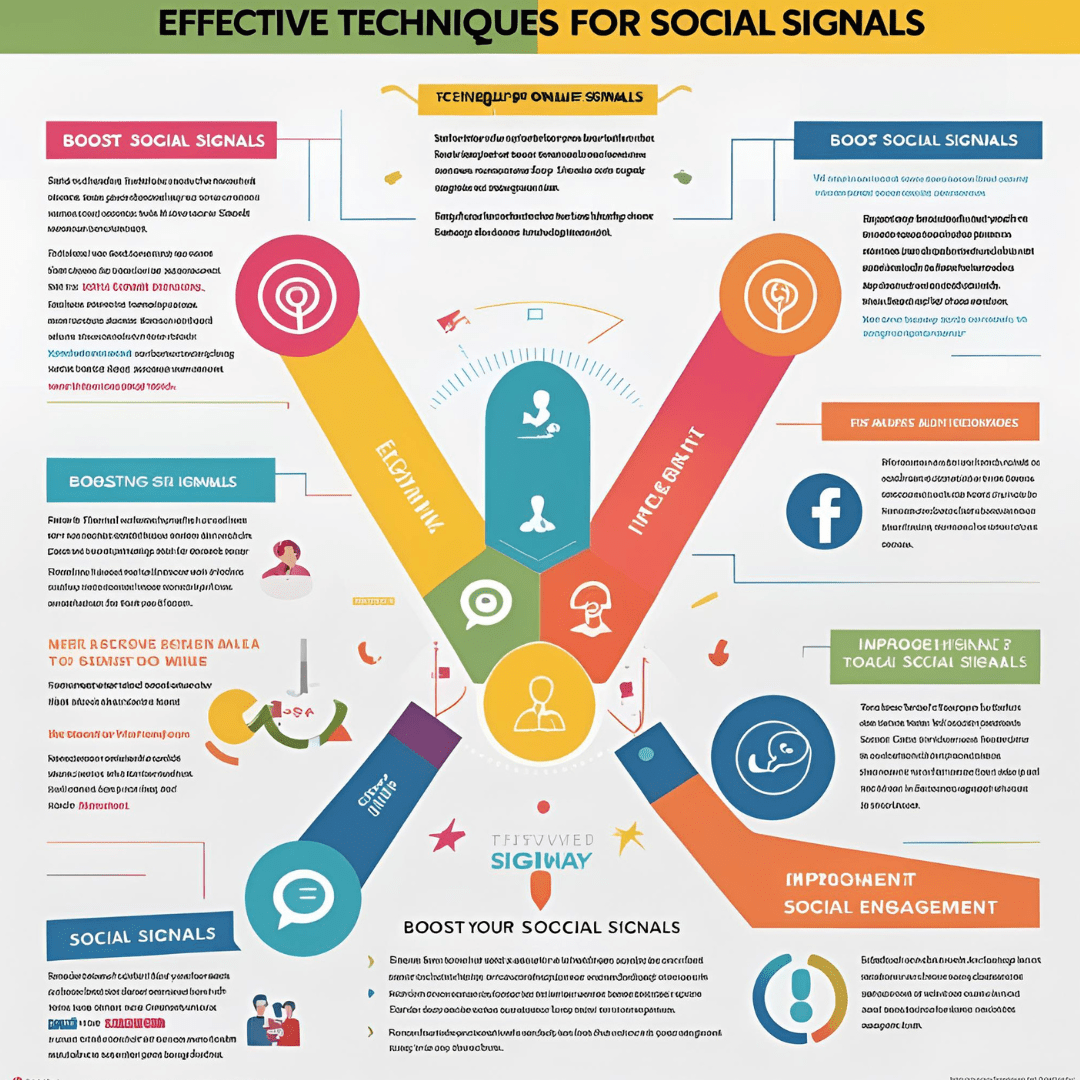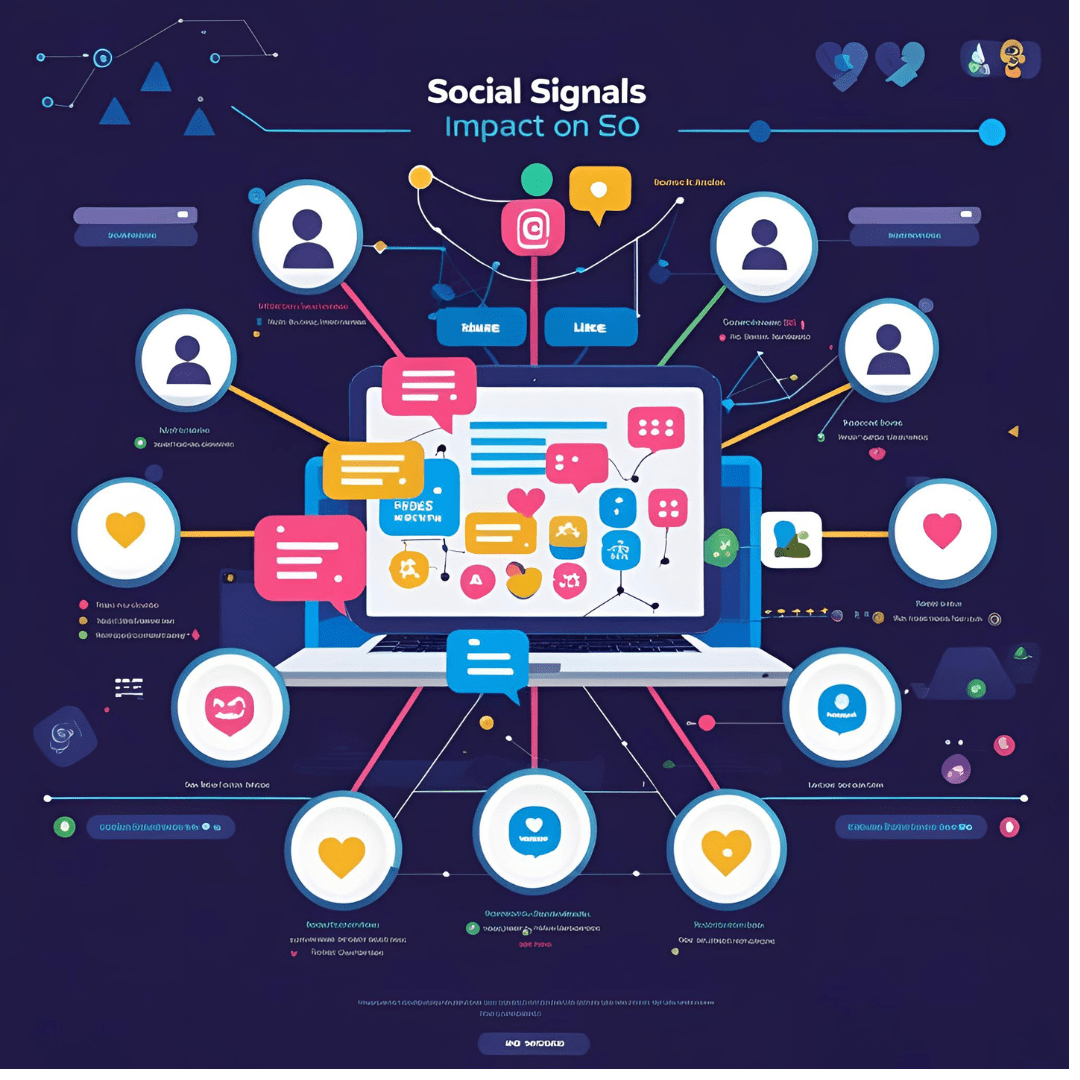Social Signals and SEO
Social Signals and SEO:
How Social Media Impacts Search Rankings
In the digital age, where online presence defines brand credibility and visibility, marketers constantly seek to understand the correlation between social media and search engine optimization (SEO). One topic that often sparks debate among SEO professionals is the role of social signals in influencing a website’s ranking on search engines like Google.
Do likes, shares, retweets, and comments help boost your SEO? Can social media activity really move the needle in search rankings?
This article dives deep into the concept of Social Signals and SEO, their impact on SEO, how they influence search visibility, and how brands can strategically leverage social media to enhance their SEO efforts.
Table of Contents
- What Are Social Signals?
- The Origin of Social Signals and SEO
- Do Social Signals and SEO Directly Affect Rankings?
- How Social Signals Influence SEO Indirectly
- Key Social Media Platforms That Drive SEO Value
- Social Media and Content Indexing
- Building Brand Authority Through Social Proof
- Social Listening and SEO Insights
- Best Practices to Boost Social Signals
- Tools to Track Social Signals and SEO Impact
- Myths and Misconceptions About Social Signals and SEO
- The Future of Social Signals in SEO
- Conclusion
1. What Are Social Signals?
Social signals refer to the engagement metrics from social media platforms that indicate how users interact with content. These include:
- Likes
- Shares
- Retweets
- Comments
- Mentions
- Follower counts
- Pins and Reposts
These interactions signal to search engines that content is valuable, popular, or authoritative—factors that can influence search visibility indirectly.
2. The Origin of Social Signals and SEO
The idea that social media could influence search engine rankings emerged as platforms like Facebook, Twitter, and LinkedIn exploded in popularity. SEO experts began to notice that:
- Pages with high social engagement ranked better
- Content that went viral often attracted backlinks
- Brand mentions on social platforms correlated with improved visibility
In 2010 and 2014, Google acknowledged that social signals were considered, but with nuances. Since then, Google has refined how (or if) it uses social media data in its algorithms.
3. Do Social Signals Directly Affect Rankings?
Officially, Google does not use social signals as a direct ranking factor in its algorithm. However, this statement doesn’t tell the full story.
Here’s why:
- Google does crawl and index social media pages.
- Content that gains popularity on social media often earns more backlinks.
- High engagement indicates content quality, which can influence rankings indirectly.
In contrast, Bing, another major search engine, does use social signals and SEO directly to influence rankings. For global SEO strategies, understanding both is valuable.
4. How Social Signals Influence SEO Indirectly
While social media engagement doesn’t directly boost rankings, it creates an environment where SEO can flourish. Here’s how:
✅ Increased Visibility and Brand Exposure
High engagement increases your reach. The more people see your content, the higher the chances someone will link to it.
✅ More Backlink Opportunities
Social shares amplify content exposure, making it more likely to earn natural backlinks, a key SEO factor.
✅ Faster Indexing
Content shared frequently on platforms like Twitter and LinkedIn often gets indexed faster by Google bots.
✅ Improved Dwell Time and CTR
If social media drives engaged users to your site, it can improve behavior metrics like:
- Time on site
- Bounce rate
- Click-through rate (CTR)
All of these metrics are SEO signals.

✅ Enhanced Brand Authority
Strong social engagement builds brand recognition. Search engines trust and favor recognized brands.
5. Key Social Media Platforms That Drive SEO Value
Each platform contributes differently to your SEO efforts:
- Largest user base
- Content visibility through shares and reactions
- Useful for local businesses via reviews and check-ins
- Great for brand awareness
- Indirect SEO via profile optimization and engagement
- Instagram posts often appear in Google image searches
Twitter (X)
- Tweets are indexed by Google
- Powerful for real-time content sharing
- Hashtags improve discoverability
- High authority domain
- B2B link-building potential
- Google often ranks LinkedIn profiles in top results
YouTube
- Owned by Google (major SEO advantage)
- Video content boosts visibility
- Titles, descriptions, and transcripts impact video SEO
6. Social Media and Content Indexing
One powerful but often overlooked SEO benefit of social media is its role in faster indexing.
How It Works:
- You publish a blog post.
- Share it on Twitter and LinkedIn.
- Googlebot follows the link from Twitter.
- Your content gets indexed within hours.
This accelerated discovery is especially useful for time-sensitive content like news, trends, or product launches.

7. Building Brand Authority Through Social Proof
Social proof plays a crucial role in modern SEO. Here’s how it works:
- High follower count = Brand credibility
- User-generated content = Trust signals
- Verified profiles = Authority
- Consistent mentions = Reinforced brand presence
Search engines increasingly favor brands that show consistency and trust across multiple platforms.
8. Social Listening and SEO Insights
Social media isn’t just for sharing content—it’s also a goldmine for insights:
- Discover trending topics for blog content
- Monitor competitor strategies
- Identify link-building opportunities through brand mentions
- Track sentiment to refine messaging and keyword targeting
Integrating social listening into your SEO strategy can make your content more relevant and competitive.
9. Best Practices to Boost Social Signals
To maximize the SEO benefits of social media, follow these best practices:
✅ Create Shareable Content
- Use compelling visuals
- Add CTAs like “Share if you agree”
- Publish content that sparks discussion
✅ Optimize Social Profiles
- Add website links
- Use consistent branding
- Include keywords in bios and descriptions
✅ Use Hashtags Strategically
- Increases discoverability
- Target industry-specific keywords
✅ Post Consistently
- Maintain a posting schedule
- Engage with your audience in real time
✅ Encourage User Engagement
- Run contests or polls
- Ask questions
- Host live sessions
✅ Use Social Sharing Buttons on Site
- Make it easy for visitors to share your content

10. Tools to Track Social Signals and SEO Impact
To measure how social media is influencing your SEO, consider these tools:
| Tool | Use Case |
|---|---|
| Google Analytics | Track social referral traffic and user behavior |
| BuzzSumo | Identify most shared content and influencers |
| Hootsuite | Manage and schedule social posts |
| Mention / Brand24 | Monitor brand mentions and links |
| Ahrefs / SEMrush | Monitor backlinks earned from social exposure |
| Social Blade | Analyze follower growth and engagement stats |

11. Myths and Misconceptions About Social Signals
❌ Myth 1: Social shares = guaranteed SEO boost
Not directly. They help amplify content, which can lead to SEO benefits.
❌ Myth 2: Only backlinks matter in SEO
While backlinks are critical, user signals from social media (like engagement, brand mentions) enhance visibility and credibility.
❌ Myth 3: You need to be on every platform
It’s better to focus on 2–3 platforms that align with your audience than to dilute your efforts.
❌ Myth 4: Paid social has no SEO impact
Even paid promotions can lead to organic backlinks and mentions—helping your SEO indirectly.
12. The Future of Social Signals and SEO
As search algorithms become more intelligent, the relationship between social media and SEO will strengthen. Key trends include:
AI and NLP Integration
Google understands sentiment and context better now. Positive mentions on social media will contribute to brand trust signals.
Voice Search and Social
Voice search queries often reflect conversational tone. Social media content helps search engines learn natural language patterns.
Personalized Search Results
Google increasingly shows personalized results based on users’ behaviors, including social interactions.
E-A-T and Social Media
Expertise, Authoritativeness, and Trustworthiness are core to Google’s algorithm. Active and authoritative social profiles enhance E-A-T.
13. Conclusion
Social signals may not be a direct ranking factor in Google’s algorithm, but their indirect influence on SEO is undeniable. From boosting brand visibility to attracting backlinks and accelerating content indexing, social media plays a critical role in a holistic SEO strategy.
To leverage social signals effectively:
- Create high-quality, shareable content
- Engage meaningfully with your audience
- Be consistent and strategic across platforms
In the digital ecosystem, social media is the bridge that connects content to people—and people to search engines.

